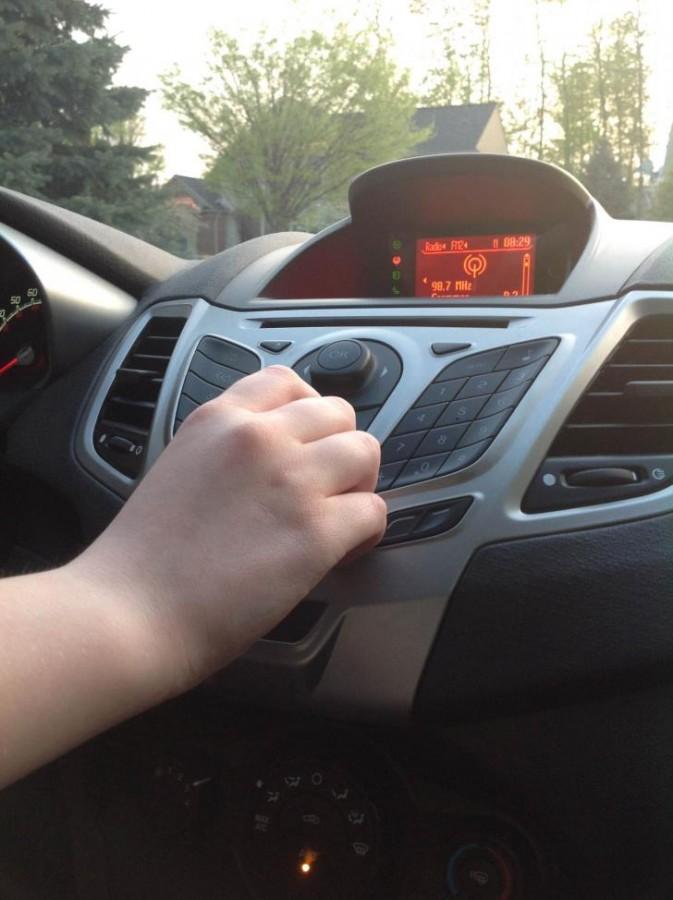Radio: release of control
When you get into the car after a long day at school, chances are you do one of two things: turn on the radio, or fire up your phone to listen to your favorite tunes. In the past, the radio has been the go-to choice for music lovers of all ages, but the rising popularity of music streaming services has prompted some people to forgo radio in favor of apps such as Spotify, last.fm, Rdio, and Pandora.
Music streaming companies offer much more control than radio, allowing users to create custom playlists and play their favorite songs at will. Despite the allure of music streaming, however, many people still choose to listen to the radio because it represents an element of chance in their otherwise carefully planned lives.
Today’s society is characterized by planning. People plan their morning commutes, their meals, their outfits, their workouts, their social interactions, and their futures. The goal of high school is to help students plan for college and to prepare them so well for the application process that there is no doubt they will be accepted. Large corporations are able to run efficiently only because of the careful planning that goes into their every action. Society is a huge game of chess that moves at a creeping pace as millions of entities carefully plan out their next move. In this regulated and disciplined world, radio is one of the few things left that we can’t completely control.
When we turn the radio on, whatever song is playing comes as a complete surprise to us every time. We can not force the radio station to play our favorite songs (though listeners can call in requests), and we therefore are exposed to a wide range of music, including songs we do not especially like. This element of chance and uncertainty is a refreshing change for listeners who are used to being able to manipulate all the valuables in their lives.
Sophomore Sarah Maxey enjoys the unplanned experience that listening to the radio offers.
“You always have a chance of hearing a song that you hadn’t heard in forever and have forgotten about,” said Maxey.
Maxey also uses other music mediums, but says that they don’t offer the same variety that radio does.
“On iTunes and Spotify, I listen to music that I don’t want to buy,” Maxey said. “But a lot of times I don’t really like the songs that [Spotify and ITunes Radio] suggest.”
As Maxey said, the radio is useful for discovering new music when listeners get tired of the often mediocre suggestions offered by music streaming services. It is also, however, useful for exploring more deeply the genres that listeners already know they enjoy. According to The Detroit News, Christian radio is the fastest-growing radio format, and new Christian rock music is released daily. Loyal listeners use Christian radio stations to listen to the music they know and love.
Furthermore, radio introduces a tiny element of risk into our mundane lives. Once a song is over, we wait with bated breath to see if we will enjoy the next one. If we do, we feel an inexplicable sense of private victory, as if we had something to do with the luck that put our favorite song on the air. If a song that we hate is played, there is nothing we can do about it. We must accept our fate. There is little in our lives today that offers this opportunity to try our luck, albeit in an extremely low-stakes game.
The most important ability that radio possesses, however, is its talent for bringing people together. Listeners are united by their mutual lack of control, and songs can be discussed and debated without fear of insulting the DJ.
Sophomore Elise Scarchilli recognizes the unifying power of radio.
“When there are people you barely know in the car, playing the radio makes it less awkward,” said Scarchilli. “Plus, it’s super fun when you hear old songs you both like.”
So next time you’re sitting in Mercy’s after-school parking lot traffic jam, take a chance and turn on the radio. You might just find it revitalizing to sit back and relinquish control.

